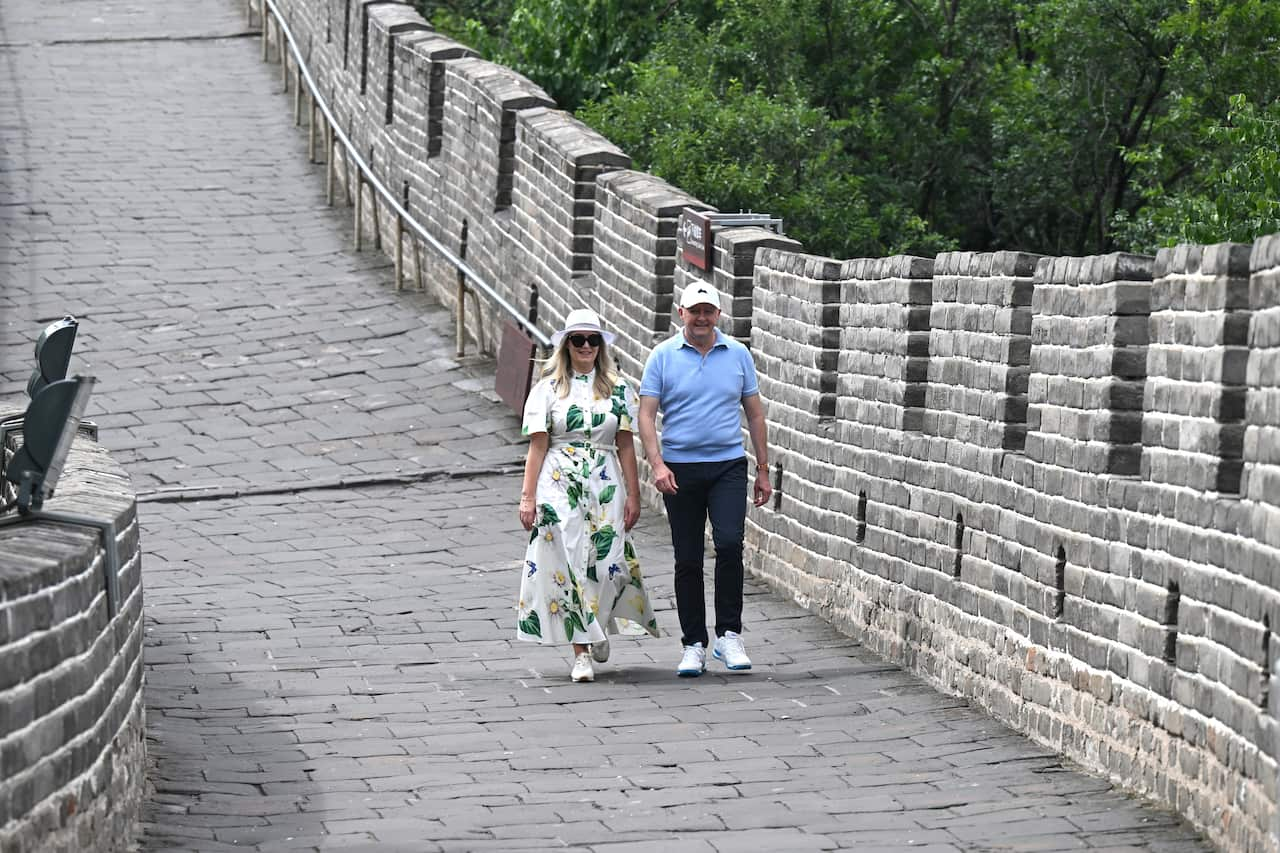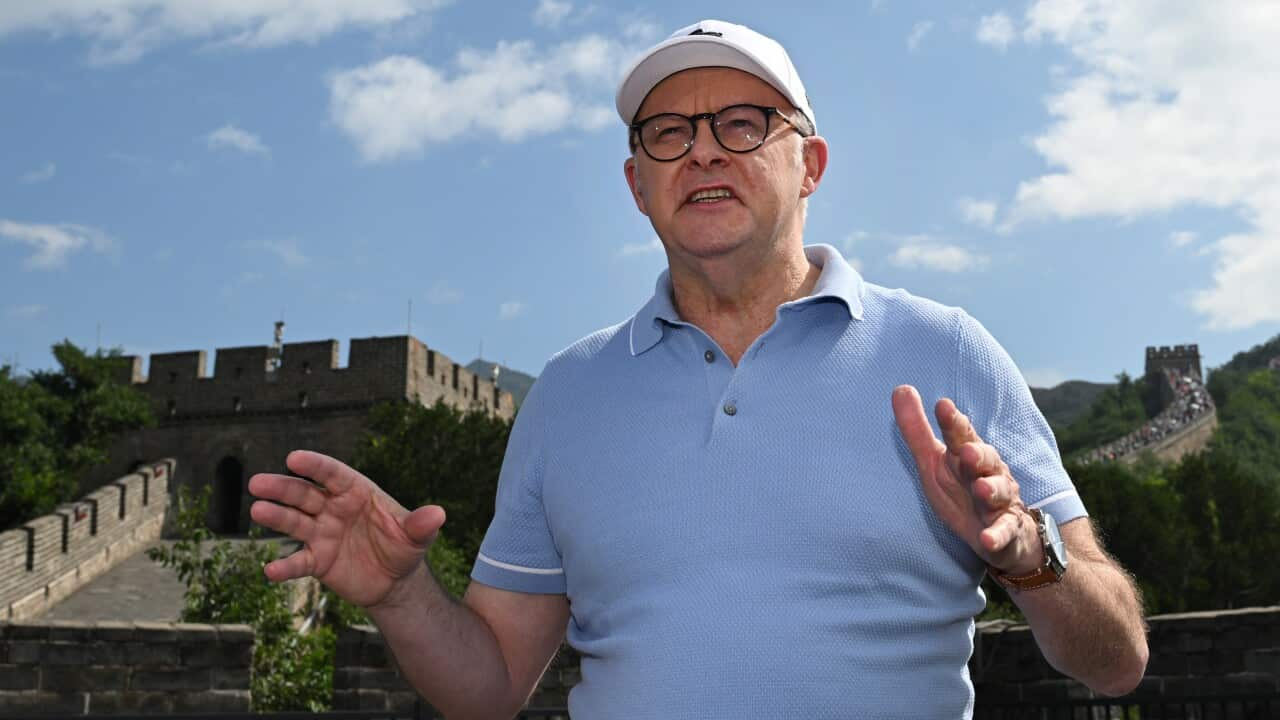Prime Minister Anthony Albanese has been forced to clarify Australia's position on Taiwan independence following Chinese media reports about his face-to-face meeting with President Xi Jinping.
Albanese met with Xi in Beijing on Tuesday to review the free trade agreement, areas of cooperation in the region, and strengthen ties between the two countries.
Following their bilateral talks, Chinese state media reported a read out of the meeting that said Albanese had assured Xi that Australia does not support Taiwan's independence.
Albanese was asked at a press conference if he specifically used those words and if he agreed with the framing and interpretation.
"Well, you're trying to quote a Chinese read-out that I haven't seen. What we do is continue to support a one-China policy. We support the status quo," Albanese told reporters.
"By definition, we don't support any unilateral action on Taiwan. That's been our position for a long period of time. Nothing's different there."
China claims Taiwan as its own territory, which should be taken by force if necessary. Taiwan says it is an independent country and will defend its freedoms and democracy, blaming China for tensions.
Australia adheres to a 1992 agreement between Taiwan and mainland China, which states there is only "one China", with disagreement over its official representation. While Australia doesn't formally recognise the self-governed island as a sovereign state, it does support unofficial ties with Taiwan.

Standing atop the Great Wall of China, Albanese described eight hours of meetings with Chinese leaders as "really constructive".
He said a state dinner he attended on Tuesday night, which included a local band playing a version of Midnight Oil's Power and the Passion, as gestures of respect, was a "wonderful event".
When asked about Chinese state media reports describing Labor as having a special relationship with China that is stronger than the Coalition's, Albanese said: "I don't think about any interests of a political party. What I do is think about the national interest and I continue to do that each and every day."
China hails Albanese's 'personal efforts' to restore ties
China's Premier Li Qiang congratulated Albanese on his re-election and for his "personal efforts" to stabilise the China-Australia relationship, which soured under the former Liberal government during the COVID-19 pandemic.
"China-Australia relations have moved beyond a low point and returned to the right track of stability and development," Li said.
Since the pair last met in October last year, "a lot has happened in the world", Li said, and there was growing instability and uncertainty in the global economy.
"The development of all countries is faced with new challenges. Given such circumstances, China and Australia as important trade partners, should strengthen dialogue and co-operation," Li said.
Albanese said he looked forward to the two nations exploring new opportunities in trade, climate change, tourism and culture.
"We'll also have an opportunity to have a frank and open dialogue that enables us to navigate issues that need to be discussed," he said.
Albanese earlier used a meeting with Xi to raise concerns over China's lack of notice before it conducted military drills off the Australian coast.
The live firing exercise in international waters near Australia in February forced commercial flights overhead to divert.
Speaking after Tuesday's meeting, Albanese said he had secured a commitment from China to provide Australia with better information on military drills in the region.
Albanese noted the drills being in international waters did not contravene international law, "but that we were concerned about the notice and the way that it happened, including the live fire exercises".
Australia's position on there being no unilateral change to the status quo over Taiwan was also conveyed to the Chinese president, he said.
"We want peace and security in the region, that is in the interests of both Australia and China," Albanese replied when asked whether he had raised China's unprecedented military build-up.

Xi didn't raise reports that the United States had asked Australia to commit to teaming up during a potential conflict with China over Taiwan, nor Labor's commitment to terminate a Chinese company's lease of the Port of Darwin, Albanese said.
The prime minister also raised the detention of Australian writer Yang Hengjun but said he did not expect immediate progress on the case.
Yang was given a suspended death sentence in China on secretive national security charges that Australia rejects.
"I raised the case, you wouldn't expect there to be an immediate outcome and that is not the way things work," Albanese told reporters.
In a jab at US isolationism under US President Donald Trump, Xi said countries should work together to "support multilateralism and free trade, defend the United Nations-centred international system and the international order".
The bilateral meetings with Xi, Li and Communist Party chair Zhao Leji — the three highest-ranking members of China's ruling committee — mark the centrepiece of Albanese's six-day tour of the Middle Kingdom.
During the meeting, Zhao noted Albanese's visit so soon after his re-election showed the importance of the Sino-Australian relationship.
Earlier on Tuesday, Chinese security officials tried to stop Australian journalists, who were travelling with the prime minister's delegation, from leaving a tourist attraction in Beijing after filming in the area.
The group of reporters had permission to film at the location but were stopped by security officials and told to hand over the footage before the police arrived.
The journalists were able to leave the site with the footage, despite being followed by security.
— With additional reporting by the Australian Associated Press.
For the latest from SBS News, download our app and subscribe to our newsletter.

